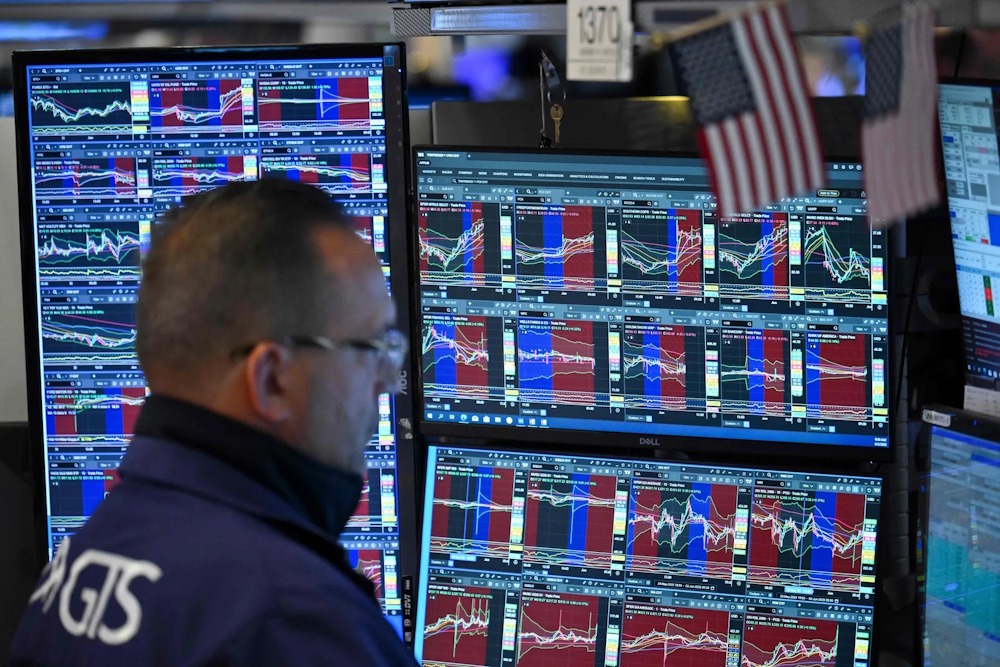
Asian stocks exhibit a broad upward movement, while European equities remain stable, as U.S. markets are set to close in observance of Thanksgiving. A recent economic survey conducted by the Federal Reserve highlights apprehensions regarding the American jobs market, as investors anticipate a further reduction in interest rates by the central bank in December. Chinese property stocks decline as a significant developer undergoes debt restructuring, whereas Bitcoin rises slightly above the $91,000 mark.
On Thursday, a majority of Asian stocks experienced gains, reflecting a sustained recovery observed. This uptick was driven by investor interest in technology shares, fueled by increasing confidence that the U.S. Federal Reserve is likely to reduce interest rates in the upcoming month. China’s Shanghai Composite experienced an uptick, driven by expectations of additional stimulus measures from Beijing, amid growing apprehensions regarding a potential crisis in the property market of the world’s second-largest economy. Japan’s Nikkei experienced an increase of 1.3%. Asian markets responded favorably to the upward movement of the major U.S. averages, which experienced gains for the fourth consecutive session on Wednesday. The U.S. stock markets will observe a closure on Thursday in observance of the Thanksgiving holiday, with a brief trading session scheduled for Friday. In other markets, European equities experienced a subdued start, as the pan-European Stoxx 600 index remained near the breakeven point. The FTSE 100 in the U.K. experienced a slight decline of 0.1%, whereas the DAX in Germany saw an increase of 0.4%, and the CAC 40 remained largely stable.
The U.S. labor market seems to be experiencing a period characterized by restrained layoffs and modest hiring, as indicated by a report from the Fed on Wednesday. In its “Beige Book” compilation of insights from businesses and households across its regional branches, usually published two weeks ahead of its forthcoming monetary policy meeting, the Fed noted “despite an uptick in layoff announcements, more Districts reported contacts limiting headcounts using hiring freezes, replacement-only hiring, and attrition than through layoffs.” Firms have been contending with economic uncertainty throughout 2025, partly due to the ambiguity surrounding the potential consequences of extensive U.S. tariffs. This struggle appears to be persisting. The Fed indicated that there were “multiple reports of margin compression or firms facing financial strain stemming” from the levies. The U.S. labor market has exhibited signs of weakening, a development that influenced the Federal Reserve’s decision to reduce interest rates in September and October. In theory, a reduction in borrowing costs may stimulate investment and, consequently, lead to increased hiring.
Chinese property stocks experienced a decline on Thursday as major developer China Vanke sought to restructure a portion of its debt, raising fresh concerns regarding a potential debt crisis in the persistently struggling sector. Vanke’s Shenzhen shares experienced a decline exceeding 7%, reflecting a prolonged downturn in the company’s bond prices. Hong Kong-listed peers including Sunac China Holdings Ltd, Shimao Property Holdings Ltd, New World Development Co Ltd, Longfor Properties Co Ltd, and Sunac China Holdings Ltd experienced declines ranging from 0.5% to 7%. Vanke announced late Wednesday its intention to seek bondholder approval for the postponement of repayment on a 2 billion yuan onshore bond, reigniting concerns regarding a debt crisis within China’s property sector. Vanke appears poised to become the latest and potentially most significant domino to topple in China’s troubled property sector, succeeding notable defaults by private developers Evergrande and Country Garden in recent years.
Oil prices experienced a downturn in European trading following the release of official data indicating a significantly larger-than-anticipated increase in U.S. crude inventories. Additionally, a peace framework supported by Washington concerning Ukraine has heightened the likelihood of additional Russian supply re-entering the markets. As of 03:33, Brent Oil Futures expiring in January decreased by 0.1% to $62.49 per barrel, whereas West Texas Intermediate crude futures remained relatively unchanged at $58.63 per barrel. Both contracts experienced an increase of over 1% on Wednesday as market participants raised their expectations for a Federal Reserve rate cut in the upcoming month, a development that typically bolsters crude prices.
Bitcoin experienced a rebound on Thursday, surpassing the $91,000 threshold as heightened expectations regarding a Federal Reserve rate cut spurred a resurgence of investor interest. The world’s largest cryptocurrency was trading 4.5% higher at $91,305.5 as of 03:33. After declining to approximately $80,000 last Friday — marking its lowest point since April – the leading digital asset has changed direction. The current market expectations indicate approximately an 85% likelihood of a quarter-point rate reduction by the Fed, a significant increase from the 44% probability observed just a week prior. Reduced interest rates may enhance the appeal of perceived risk assets like Bitcoin.
